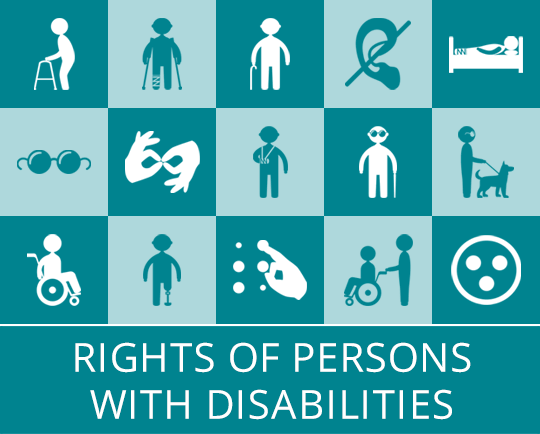The Rights of Persons with Disabilities Act, 2016 is the disability legislation passed by the Indian Parliament to fulfill its obligation to the United Nations Convention on the Rights of Persons with Disabilities, which India ratified in 2007. The Act protects the rights of persons with disabilities and defines a person with a disability as a person with long-term physical, mental, intellectual, or sensory impairment that limits full and effective participation in society.
The Act provides for various rights and entitlements for persons with disabilities, such as equality and non-discrimination, accessibility, education, employment, social security, health, rehabilitation, culture and recreation etc. The Act also provides for special provisions for persons with benchmark disabilities (those with at least 40% of any of the specified disabilities) and persons with disabilities with high support needs. The Act also mandates the registration of institutions for persons with disabilities and grants to such institutions. The Act also provides for certification of specified disabilities by designated authorities. The Act also establishes central and state advisory boards on disability and district level committees to monitor the implementation of the Act.
However, the Act remains only a legal document without intense sensitisation of government functionaries and citizens regarding disability. Some of the reasons for this are:
Lack of awareness and understanding of the provisions and objectives of the Act among the public and the authorities.
Lack of adequate budgetary allocation and human resources for implementing the Act effectively.
Lack of coordination and convergence among different ministries, departments and agencies involved in disability-related matters.
Lack of accessibility and reasonable accommodation in public places, transport, information and communication technology, consumer goods etc.
Lack of data and evidence on the situation and needs of persons with disabilities.
Lack of participation and consultation of persons with disabilities and their representative organizations in policy-making and implementation.
Lack of grievance redressal mechanism and enforcement of penalties for violations of the Act.
Therefore, it is imperative that government functionaries and citizens are sensitised regarding disability and the rights of persons with disabilities. Some of the measures that can be taken are:
Conducting awareness campaigns and training programmes on disability rights and inclusion for various stakeholders such as officials, service providers, employers, educators, media etc.
Allocating adequate funds and human resources for implementing the Act effectively and ensuring accountability and transparency in their utilization.
Establishing effective coordination and convergence mechanisms among different ministries, departments and agencies involved in disability-related matters.
Ensuring accessibility and reasonable accommodation in public places, transport, information and communication technology, consumer goods etc as per the standards prescribed by the Act.
Collecting disaggregated data and evidence on the situation and needs of persons with disabilities and using them for planning and monitoring of policies and programmes.
Involving persons with disabilities and their representative organizations in policy-making and implementation as per the principle of "nothing about us without us".
Strengthening grievance redressal mechanism and enforcement of penalties for violations of the Act.
Thus, sensitisation of government functionaries and citizens regarding disability is essential for ensuring that the Rights of Persons with Disabilities Act, 2016 is not just a legal document but a living reality for persons with disabilities in India.
